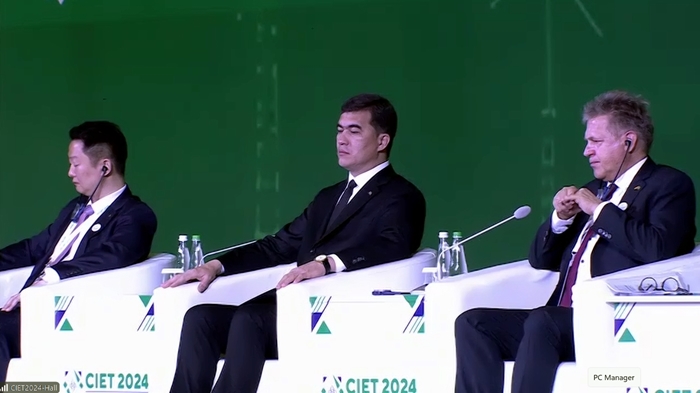At the international conference “Construction, Industry, Energy of Turkmenistan” (CIET 2024), Joachim Fritz – GIZ coordinator in Turkmenistan, Deutsche Gesellschaft für Internationale Zusammenarbeit
(GIZ) GmbH, presented the organization’s new initiatives aimed at supporting the country’s energy sector. Special attention was paid to the development of renewable energy sources and energy efficiency improvement.
Fritz stressed the importance of access to clean and affordable energy, especially in an increasingly urbanized environment. He noted that by 2050, the world’s urban population will increase by 2 billion people, which will lead to increased environmental pollution problems.
GIZ is implementing several projects in Central Asia aimed at achieving energy efficiency and developing renewable energy sources. In Turkmenistan, together with the European Union and the German Ministry of Foreign Affairs, the ” EU for a green Turkmenistan: Policy Dialogue and Climate Action 2024-2028″ was launched – this project is funded by the European Union and the German Ministry of Foreign Affairs.
The aim of the project is to support Turkmenistan in the implementation of the national climate change strategy and establish an effective political dialogue with the European Union in the field of energy and environmental protection.
In May 2024, a memorandum was signed between the Ministry of Energy of Turkmenistan, GIZ, and the State Concern Turkmengaz. The aim of this project is to establish an effective political dialogue between the European Union in the field of energy, environmental protection and climate policy, as well as to support Turkmenistan in the implementation of the national climate change strategy.
The project provides for the implementation of two small pilot projects – one on the implementation of measures to adapt to climate change, it will focus on the installation of software equipment for detecting and eliminating leaks. The second project will focus on the treatment of drainage waters using algae and the installation of a solar-powered water pumping system.
In addition, within the framework of the conference, a memorandum of understanding will be signed on a new renewable energy sources project in Central Asia, which aims to strengthen the framework conditions for regional and national integration of renewable energy sources in Central Asia.
Fritz also shared Germany’s experience in the field of energy transformation.
Germany has switched to a climate-neutral energy system. This is a large-scale economic and environmental project motivated by scientific ideas and ethical considerations, with far-reaching economic and social consequences. Over the past 25 years, the share of renewable energy sources in the German electric power mix has increased, primarily wind energy and photovoltaic energy. The share of renewable energy sources in the total volume of electricity consumed currently stands at 57%, having increased from only 6.3% in 2000. ///nCa, 4 November 2024

